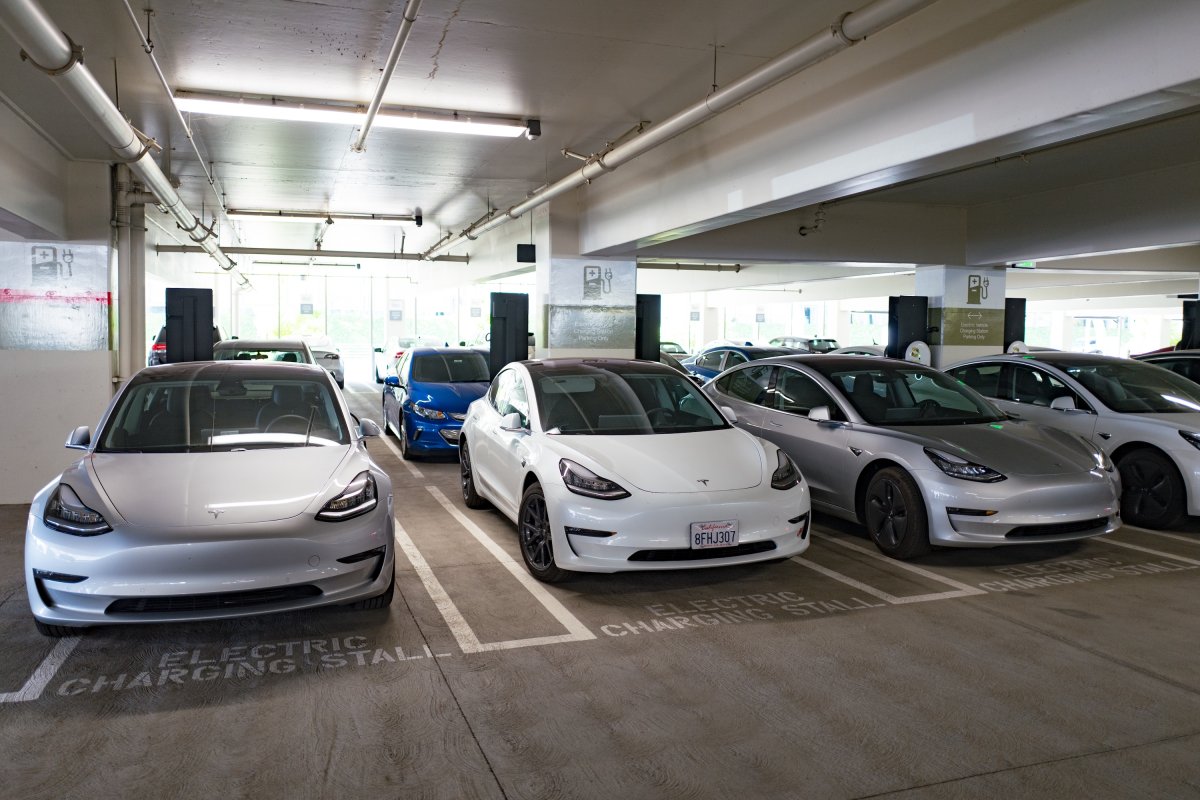President Joe Biden is pushing for half of United States auto sales to be electric vehicles (EVs) by 2030. Despite economic and humanitarian warning signs that our technology, workforce, infrastructure, and supply chains need more time to develop, it is increasingly clear that the federal government has already chosen an exclusively EV future for you.
If your opinion is the wrong one, according to the environmentalists and D.C. bureaucrats, don't worry! To help you change your mind, the Biden administration is happy to use its heavy hand to remove more affordable choices from the market over the coming decades. In response, major automakers have pledged to fully electrify their fleets. Even the U.S. military is working to switch from petroleum to volts.
Let's ignore both science and common sense for a moment and pretend that a one-size-fits-all, exclusively EV future is a good idea for America. Even in this alternate reality, the most critical imperative remains American economic strength and national security. It's still unclear whether Biden's policies will result in the U.S. leading the EV revolution or whether we will cede American automotive leadership to the People's Republic of China (PRC). The Biden administration will effectively make this decision in the coming months through its implementation of the so-called Inflation Reduction Act (IRA).
Decades of unfair trade agreements for American producers and rampant offshoring of U.S. manufacturing has decimated America's industrial base and middle class. And for a long time, our policymakers didn't just fail to stop it; they enabled it.
One immediate step lawmakers can take to establish guardrails that protect the national interest is to ensure that the IRA—the haphazardly passed legislation designed to bolster the U.S. clean energy industry through investments and tax incentives—is pro-America. The two most notable provisions are the IRA's Clean Vehicle Credit and the Advanced Energy Project Investment Tax Credit.
The former provides tax incentives of up to $7,500 to purchasers of U.S.-assembled electric vehicles made with U.S.- or ally-manufactured batteries, components, and critical minerals. The latter offers a 30 percent tax credit for investments in new factories that produce clean energy technology including solar, wind, and batteries.

Thanks to this legislation, EVs are supposed to be ineligible for IRA tax credits if they use batteries, battery components, or critical minerals from "foreign entities of concern," including China, Russia, Iran, and North Korea.
At this point, the Biden administration has left "foreign entity of concern" largely undefined, leaving open loopholes that some U.S. automakers are exploiting. For example, it's unclear whether an electric vehicle with a U.S.-made battery built with Chinese technology would be eligible for a tax credit. The Treasury Department is expected to answer this question in the coming months. The answer will determine whether Beijing or the U.S. will sit in the driver's seat of the electric future.
Some U.S. automakers have taken advantage of the ambiguity around the definition by announcing new partnerships with Chinese companies that they believe will allow them to benefit from the IRA's tax credits while still relying on Chinese technology.
These companies argue that this is the cheapest, most efficient option. One automaker recently announced it will build an iron phosphate battery factory in Michigan in partnership with China's dominant EV battery producer. It's worth noting that the Chinese partner's CEO is an active CCP official who, pursuant to PRC laws, is subservient to PRC security services. As Secretary of State Antony Blinken said, "In China, there's really no distinction between private companies and the state."
In time, other automakers will follow suit and CCP-controlled factories will pop up across the country, eviscerating our domestic EV sector and cementing China's dominance of the market. Adding insult to injury, this arrangement would also enrich the PRC. U.S. Senator Joe Manchin (D-W.V.) said that if vehicles using batteries manufactured by CCP-controlled companies are eligible for the IRA's Clean Vehicle Credit, $900 out of the $7,500 would flow to China.
But a PRC takeover of the American EV industry is not inevitable. Congress and the Biden administration can codify my bill, the No American Tax Dollars to CCP Act, to ensure that "foreign entities of concern" are clearly defined and barred from benefiting from IRA tax credits or other incentives. The Committee on Foreign Investment in the United States could ameliorate the threat by axing the proposed partnerships.
Businesses prioritize profits; the government must prioritize national security. Hopefully, the Biden administration will heed the lessons of the past and prevent another American industry from losing its grip to China.
John James, a Republican, represents the 10th district of Michigan in the U.S. House of Representatives.
The views expressed in this article are the writer's own.
Uncommon Knowledge
Newsweek is committed to challenging conventional wisdom and finding connections in the search for common ground.
Newsweek is committed to challenging conventional wisdom and finding connections in the search for common ground.
About the writer
To read how Newsweek uses AI as a newsroom tool, Click here.






